These 16th Asian Games were my first ever. I had covered basically all the badminton tournaments in the world but this one, part of a gigantic multi-sport event. I must admit I had no idea of the size and importance of it. We, in Europe, have no European Games. Maybe because the old continent is too small. Or because organizing such an event costs too much money. Either way, I was expecting a nice event, but nothing like what I saw. It was just like the Olympics, really. The atmosphere, set up, the amazing opening ceremony, the people involved, the smiles.
600 000 volunteers…
Of course, China, more than any other nation – apart from India maybe – can count on an amazing number of human resources to make their Games a success. Can you imagine, 600 000 young people mobilized to stand in the street, in the booths around the city, at venues to help spectators, in malls to help visitors, everywhere. 600 000! Schools and universities had been involved with this project for a long time and one could feel the excitement in these kids’ eyes. It was pride they had in their eyes to share their knowledge. It wasn’t just a job for them, but a true opportunity to make other people discover their country, their city. The Chinese, for that matter, are quite amazing and the volunteers, once again, are the ones who made these Games special.
Ups and downs for locals
As a foreigner, I always wonder whether the local people also welcome such a huge event. In Beijing, at the time, a lot of old houses had been destroyed and their inhabitants told to leave the place. In Guangzhou, of course, there was also a will to “hide” some parts of the suburban townships behind big Asian Games colourful paintings and ads “Thrilling Games and Harmonious Asia”. But I didn’t feel like the city had changed drastically as Beijing had in the months prior to the Olympic Games. Of course, it has its down-side as well, for local people, who could only take their cars every other day (odd and even numbers of their license plate authorized every other day), during the full duration of the event – including the Asian Para Games to come up after. A month of restriction, somehow. The inhabitants of buildings surrounding the stadium where the Opening ceremony was held were also simply asked to leave their flats to ensure a good flow of the show – they were just given passes for a few hours in hotels nearby, for the duration of the Ceremony. A very Chinese way of thinking, I suppose, but one cannot judge, and must admire the work, the search for perfection. And the local government tried to give back some of the money to the local inhabitants – a first try by providing free transportation in the new Metro, but after it appeared to make the transportation stuck with too many people, they just allocated 150 yuan (around 20 euros) to each family in Guangzhou.
Bad timing
If the setup, the organization was close to perfect, there was however one thing that made this trip a bit too tiring for me anyways – maybe I’m getting old but I felt like my young colleagues were just as tired. But badminton sessions began very early in the mornings and ended late at night, with big breaks in the afternoon. This meant, not only for officials and reporters, but also for some players, that they had to wake up around 5 or 6 am to prepare for their match, travel over one hour from the Athletes’ Village, warm up, etc. I was lucky to be staying at a hotel nearby, but it was still a shame to have to get up so early when the sessions could have simply moved to a later hour for everyone’s benefit. It was not fair to some players, for example Yip Pui Yin, who had to play her semi-final match not even 12 hours after her success over Saina Nehwal and then went on to lose to one of the local players who was, of course, much fresher.
Impressive press services
Among the numerous “ups” were the great press service provided throughout the competition in the venue, starting with the amazing lighting. I wish we, as photographers, had similar lighting in all badminton venues. Also, if the photo positions were too restricted – but that has to do with the usual standard in Olympic and Asian Games – the photo positions in the stands were clearly marked and spacious enough for us to keep our heavy equipment near the shooting spots. It looked as if the hall was dedicated for photographers. Nice. As for written press, large desks with Internet cabling, and a bunch of amazing volunteers who kept anticipating any needs. Only a few minutes after each match, we were given the full match statistics and the quotes. I must thank all the friendly volunteers who made these long hours of work much easier to cope with.
Funny sports
Even if my days were pretty well completely taken up with badminton (thanks to the bad timing of the session), I was still able to hear or watch on TV some other sports played at the Asian Games. And there were some odd ones, really. Nothing compared to the Olympics. I wish I had had time to see Wushu – a martial art – or Sepak Takraw (a sort of volley-ball but played with the feet and head – very acrobatic), or even the roller sports, which include the summer version of speed-skating, but with some artistic events like figure skating! Of course, China scooped most of the medals. It was expected but it just shows the strength of the hosts compared to other, less populous nations such as Korea and Japan, who still had plenty of occasions on the podium.
Sold out? Only in theory
If there was one thing that organizers will have to look after for the future events is to monitor better the sales of the tickets. While some venues were said to be sold out, it turned out to be that halls were half empty. This was a shame when some friends of families of foreign delegations had made the trip to Guangzhou hoping to be able to cheer for their compatriots. People in this category had no other option than to try to negotiate with scalpers for prices which were sometimes more than 10 times higher than the printed price. What surprised me the most was that some people were actually reselling the tickets, not even hiding from local police officers standing a few metres away…
A black market ticket for Lin’s gold medal singles victory over Malaysia’s Lee Chong Wei on Sunday went for as much as 5,000 yuan (US$750), far outstripping the 1,600 yuan that scalpers asked for Liu’s 110-metre hurdles final, Nanjing daily newspaper Yangtze Evening News said.
The newspaper, which claimed to be one of the largest newspapers in the world by circulation (1,810,000), said scalpers wanted 1,600 yuan for tickets with a face value of 80 yuan to watch Liu at the 80,000-seat Aoti Main Stadium.
Happy Birthday!
What a good idea this was: On the second day of the tournament, Kunchala Voravichitchaikul was called by the local organizers to stand in the middle of the court to celebrate her birthday, while the whole stadium – not quite full but still – sang along a joyful “happy birthday”. It was the first time I had ever seen a spectacle like that and I found it a great idea. Kunchala didn’t really know what to do when she was given a puppet from Zhang Jiewen – a player she’d played many times in women’s doubles in the past before Zhang retired and joined the Guangzhou organizing committee.
Amazing Thailand
One of the lessons to be learnt from this event, sportwise, is that Thailand has become a major nation of badminton, with silver and bronze medals scooped in the team events. That was a great performance, but what’s more striking is the age of the girls who participated in this campaign. Needless to say that these 4 girls will dispute China’s hegemony in the months and years to come. And it’s overall great news for badminton in general.
Bye bye Hyo Jung
I’ll miss Lee Hyo Jung. The tall Korean player has won it all, also. She may not be the big star that Lin Dan or even her partner Lee Yong Dae is, but the 29-year-old did scoop an Olympic gold, an All England title, a Sudirman Cup, an Uber Cup, and finally, an Asian Games gold medal with a much younger partner. This was the good surprise of the finals. Hyo Jung had been amazing all week, shouldering Shin Baek Cheol as a “big sister” and scooping a well-deserved gold medal. I’ll miss her smile, her friendly behaviour, her way of celebrating, the emotions she shows on court, the obvious joy she had to play badminton. She called it quits during the last press conference and it was quite a surprise for even the Korean reporters, who had not anticipated that this would be her last match. She explained that it was time for her to move on to other things, outside badminton. One knows how much of a sacrifice it is to be a professional badminton player – basically devoting your life to hitting shuttles with not much of a life apart from that. She wants to get married, get back to her studies. She deserves that, really.
Lee Chong Wei, just not lucky
I wish Lee Chong Wei had been born in a different time. He would probably have been world champion, Olympic champion, Asian Games gold medallist…because the Malaysian shuttler is just an amazing player. So clever, so talented. He has reached new heights lately with an improved game. If it hadn’t been for injuries that keep bothering him, and maybe a lack of confidence in some occasions, he would be the best in the world. But there is only one problem: he was born in the same generation as Lin Dan…probably the best shuttler of all time. There’s not much Lee can do about it, because Lin Dan is just a player out of this world and it’s just unlucky for Chong Wei that he has to be touring the circuit at the same time as this young left-handed conqueror, who has the capacity more than any other player to rise to the occasion and just be unbeatable when it matters. I wouldn’t say that Chong Wei still needs to prove he’s the best in the world. He is. He’s shown it by giving a lesson of mental strength to Chen Jin – the reigning World Champion – in the semis. Chong Wei is the best shuttler and deserves his world number one spot, as nobody knows whether Lin Dan could cope with the same type of a crazy schedule. But Lin Dan is better. I know it doesn’t make much sense, but that’s how I see it. There is Lin Dan, and there is the rest of the Planet Badminton. Let them share titles. I hope Chong Wei will get one of the major ones. He deserves it, truly.
Old friends
It was also for me the occasion to meet up with old friends. Some special friends I hadn’t seen for a long time, and who only travel for major events, like the Olympics or Asian Games. It’s always a precious moment to share these special events with close friends living in other parts of the world. Fellow reporters, umpires …
Goodbye Guangzhou, hello Incheon
So, after Guangzhou’s nice warm weather, it will be Korea and Incheon – home of Seoul’s International Airport but a city on its own. There will likely be several sports dropped as the total number of sports will be only 35, which will consist of the 28 sports currently entered in the Olympic Games plus seven non-Olympic events featuring various sports from the Asian region.
![Memories of…the Asian Games These 16th Asian Games were my first ever. I had covered basically all the badminton tournaments in the world but this one, part of a gigantic multi-sport event. I must […]](http://www.badzine.net/wp-content/uploads/Newsflash-thumbnail.png)
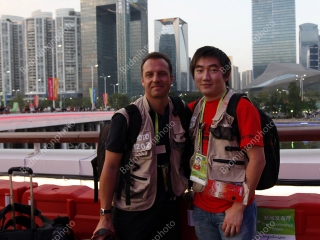
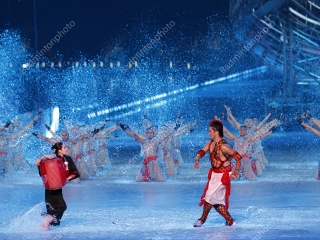
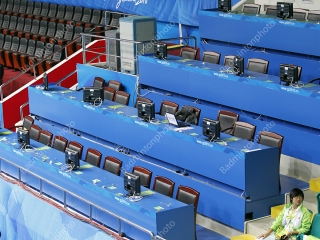
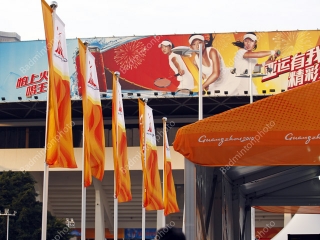
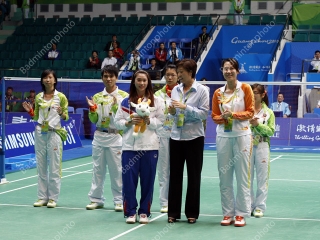
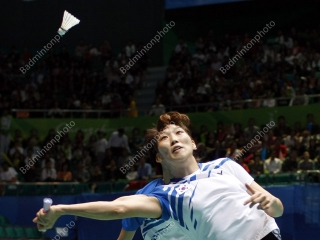
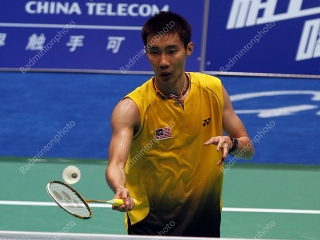
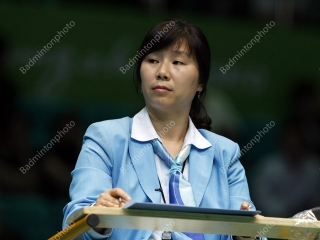

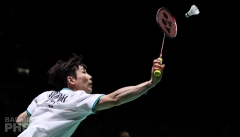
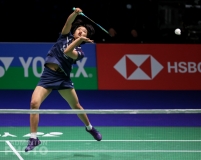
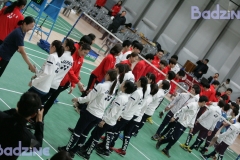
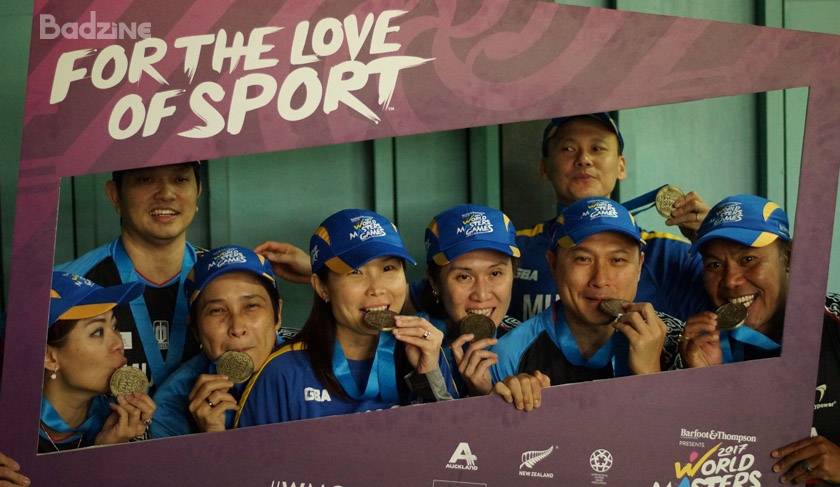

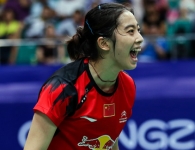
Leave a Reply